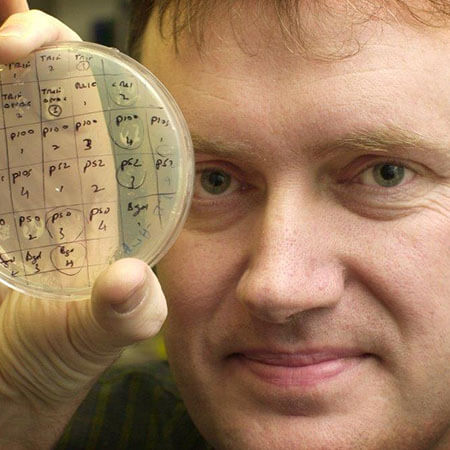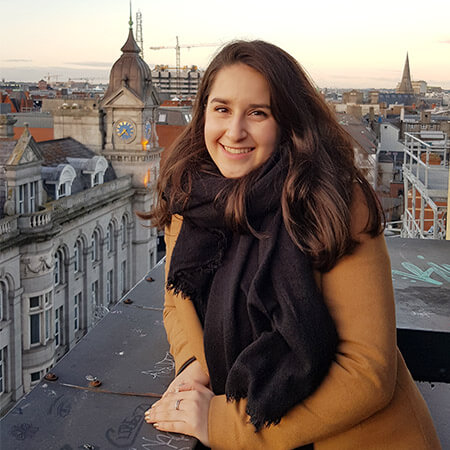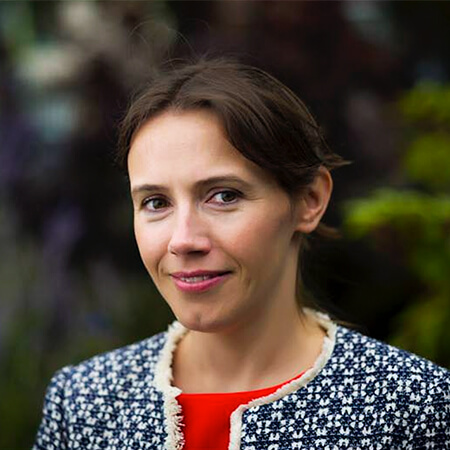Medicine in Trinity College is known as one of the most difficult courses to get into in Ireland. These students will play a major role in the future of healthcare – here and worldwide. Someday your life might just depend on one of them.
During hospital placements, some of these students will experience incidents that most of us never have to. They’ll witness life-changing moments and hear tragic backstories.
“Sometimes I’ve taken a step back and thought: ‘Oh, I’m very lucky to never have had any of those issues’,” says Aisling Hickey, a Trinity medicine student.
When Dublin.ie spoke to her in 2017, she was in the fourth year of her Trinity Medicine course.
The life of a fourth-year medical student
Founded in 1711, the School of Medicine at Trinity College Dublin is Ireland’s oldest medical school. While Aisling is at home here now, she wasn’t always sure if medicine was right for her.
“In secondary school, it was always languages or medicine. I stuck with languages in the first year of college,” she says. Soon after, however, she realised it wasn’t for her and decided to give medicine a go instead.
“I would have always thought of medicine as a child, because my parents are doctors,” she says. “It was always in the back of my mind, but the idea of medicine was hard. And I didn’t know if I wanted to get stuck with something so difficult.”
What’s student life like?
Studying medicine is a serious business. So does Aisling get to enjoy the true college experience and student life enjoyed by others?
“The major thing that makes a difference is that we are just not on campus,” says Aisling. “We’re in hospitals”. This means medical students are usually separated from the rest of the student population.
“It takes a lot to come in and do the social life that other students would do when they are finished lectures,” she says.
However, Aisling has met a lot of people and made a lot of friends throughout her course. And they have enjoyed plenty of nights out together. In fact, the class is big enough to host their own events.
“There are about 200 in the year which sounds like a lot, but everyone knows each other,” Aisling says. “The Inaugural Ball and Med Ball is coming up, so I’ll get out the long dress again!”

Trinity College Dublin
New experiences in the hospital wards
Placements are a big part of the Trinity medicine course. From third year onwards, the students are on placement most of the time.
“Last year, I had one day of lectures a week. And it’s currently the same with sporadic lectures here and there,” Aisling says. “I do prefer placement, but it is hard. You could be in there from like 8am to 7pm if your consultant isn’t particularly nice.”
While the practical experience gained on placement can’t compare with classroom learning, students have to see many things that others will never have to.
“You hear about these tragic backstories and dying kids and everything,” says Aisling. “I have never gotten upset, but I think that’s because I am used to hearing all these tragic stories at home – from Dad working in the emergency department.”
At the moment, however, Aisling is on her psychiatric placement and she hears a lot of stories of child abuse, child sexual abuse and horrific upbringings.
“That is something I wouldn’t have been exposed to, so that is hard. I don’t think I’ve ever gotten upset, but maybe have taken a step back and thought: ‘Oh, I’m very lucky to never have had any of those issues’.”
Are practice placements paid?
While Trinity’s nursing students get some pay for some of their placements, this doesn’t apply to medicine students.
“The nurses are doing an actual job,” Aisling explains. “They’re like an intern, whereas we are just observing. We might take a history or listen to a heart, but we’re not going to be the ones making a diagnosis or anything.”
Aisling’s placements are all about practice and gaining knowledge from the hospital consultants and registrars. “The hours can be long, but it’s not like we are being worked to the bone or anything,” says Aisling. “I think the nurses have a lot tougher of a time than we would on placement.”
Trinity Medicine attracts all sorts
According to Aisling, although the points are high and require top-class Leaving Cert results, the perception that Trinity Medicine students are all entitled or nerdy isn’t accurate.

Aisling Hickey – Trinity medicine student
“There are a lot of different types of medical students – the book-learning ones that love to study and research, like finding a cure for something or studying a trial,” she says. “Then, there’s the people that just love the social aspects of medicine; those that are just there to help people and science is just secondary”.
There is a lot of variety amongst the Trinity Medicine class. Though Aisling acknowledges that maybe some students could be considered “entitled”, everyone comes from a different background.
Surprisingly though, Aisling has found that much of her class isn’t from Dublin. She herself is from Sligo and many of her peers hail from abroad.
“We get a lot of international students, because Trinity has quite a good reputation around the world,” she says. “A lot of people come for that reason, so it’s a mixture.”
Aisling herself prefers the practical side of medicine, like performing procedures or emergency medicine. She likes the idea of someone sick coming in and then sending them home better.
For this reason, she plans to specialise in something procedural, like anaesthetics.
To find out more about student life, read our articles on studying in Dublin.



